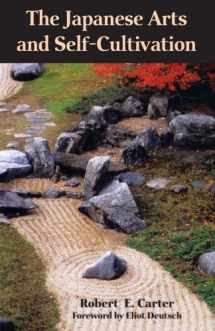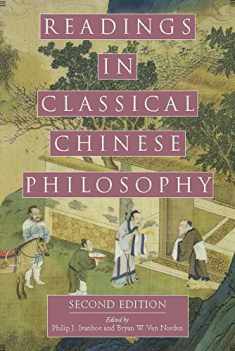
The Japanese Arts and Self-Cultivation
Book details
Summary
Description
Explores how spiritual values are learned and mind and body developed through the practice of the Japanese arts.
It is through the practice of the arts, and not through rules or theory that moral and spiritual values are taught in Japan. Author Robert E. Carter examines five arts (or “ways” in Japan): the martial art of aikido, Zen landscape gardening, the Way of Tea, the Way of Flowers, and pottery making. Each art is more than a mere craft, for each takes as its goal not just the teaching of ethics but the formation of the ethical individual. Transformation is the result of diligent practice and each art recognizes the importance of the body. Training the mind as well as the body results in important insights, habits, and attitudes that involve the whole person, both body and mind.
This fascinating book features the author’s interviews with masters of the arts in Japan and his own experiences with the arts, along with background on the arts and ethics from Japanese philosophy and religion. Ultimately, the Japanese arts emerge as a deep cultural repository of ideal attitudes and behavior, which lead to enlightenment itself.
“What makes this book such an enjoyable read is the highly personal style that Carter brings to his journey across Japan as he recounts his visits to the different masters of the arts.” — Philosophy East & West
“…offers us a clear guide to some religious, philosophical, and historical traditions within Japanese arts, to counter forcefully the prejudice that Japan does not have an ethics comparable to that of the West … the author concludes that morality and ethics are not learned in Japan through words, rules, or principles, but by physical and practical training. This is a very significant insight … a wonderful resource for everyone involved in any field of Japanese studies.”— Japanese Journal of Religious Studies
“…this book exemplifies the mindful enrichment of everyday life that we think of as Japanese and exhibits precisely those elements of Asian awareness and attentiveness to detail that appeal most strongly to the West.” — Library Journal Academic Newswire
“…captures[s] the intertwining of art, philosophy, and religion as it relates to the Japanese ethic of self-cultivation. Ethical action is taught through the arts derived from Shinto, Buddhism, and Confucianism, rather than learned by abstract theory … The style is clear … the author writes for nonspecialists.” — CHOICE
“Easy and engaging reading. Profound ideas … groundbreaking. I believe that this outstanding book would be of great interest not only to philosophers and students of philosophy … but to much of the general public as well. In particular, I recommend it wholeheartedly as essential and necessary (as well as relatively easy and engaging) reading for every serious martial artist who wishes to develop a greater understanding of the deeper dimensions of the arts.” — Jerry Larock, Aikido Journal
“This excellent book on an important topic conveys a fine sense of the variety of the arts in Japan, regarded as ways of life and therefore harboring significant ethical dimensions. Written in a relaxed, accessible style with much of the text based on interviews, which make for an especially lively read, it will also appeal to readers beyond the academy.” — Graham Parkes, translator and coauthor of Reading Zen in the Rocks: The Japanese Dry Landscape Garden by François Berthier


We would LOVE it if you could help us and other readers by reviewing the book
Book review




